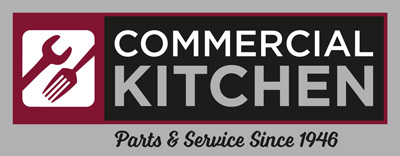By David Duckworth, Director of Corporate Operations
One of the biggest challenges the food equipment repair industry faces is finding qualified people who can perform the service work. We need technicians that are trained in the basics of electricity, gas, steam, and/or refrigeration who have both mechanical and people skills. Unfortunately, those individuals are very hard to find unless they are coming from another service company and even then we still have to train them our way of doing things. Unfortunately, even after that onboarding, we still have not added someone new to the industry, which results in a net zero gain.
In 2001 we were in dire need of technicians to keep up with our growth. Knowing we would not be able to find people with those qualifications easily. Commercial Kitchen made the decision to try something new: we would train and develop our own technicians internally and pay them to learn. We wanted to teach people the Commercial Kitchen way of performing service from the ground up. We decided to call it Commercial Kitchen University (CKU).
We ran ads searching for people interested in starting a new career. We used a testing program, from a company called Wonderlic, which tested their cognitive skills, personal traits, and mechanical skills to ensure they were the right fit for the program. Once we selected the people who met the qualifications, we followed our normal hiring process of drug screening and background checks. As a member of the Commercial Food Equipment Service Association (CFESA), Commercial Kitchen has access to certification training material for electricity, gas, and steam and we used those materials for our classes.
The CKU program lasts 12 weeks. The first section of the class is critical, teaching the electric portion. After two weeks of studying electricity we tested the students. If the students pass the written exam they were allowed to continue with the program. If they failed they were let go. We wanted them to take the program serious. We were investing a lot of time and money in them. We then moved through the other disciplines of gas and steam. We also included customer service skills and made arrangements with factories to come and train on their specific equipment. We started with 12 people and after 12 weeks we finished with 6. Three of those individuals are still working for us today. Some of them that left us are still in the business and buying parts from us. Everyone agreed the program was a success. We took a break on the program for a while. In 2006 we started talking about restarting the program and developing it into a normal recurring class. We also wanted to centralize all of our training and development into one department. I was promoted to Director of Field Operations and Training/Development in 2006. In 2007 we relaunched the program and graduated 7 technicians.
Over the last 12 years, we have made improvements to the program, including reducing the number of students per class and holding two classes a year rather than one. We have developed work books, power points and hands on training modules, and a variety of equipment to teach with. Since the 2007 relaunch we have graduated over 20 technicians. Charles Moreland was added as the Technical Trainer for the program. He was one of the graduates from the first class in 2001. In 2019 we have one class scheduled starting on August 12th.
It has been great to watch these people develop into great technicians. They now have a skill they can use for a long career in the food service repair business.

